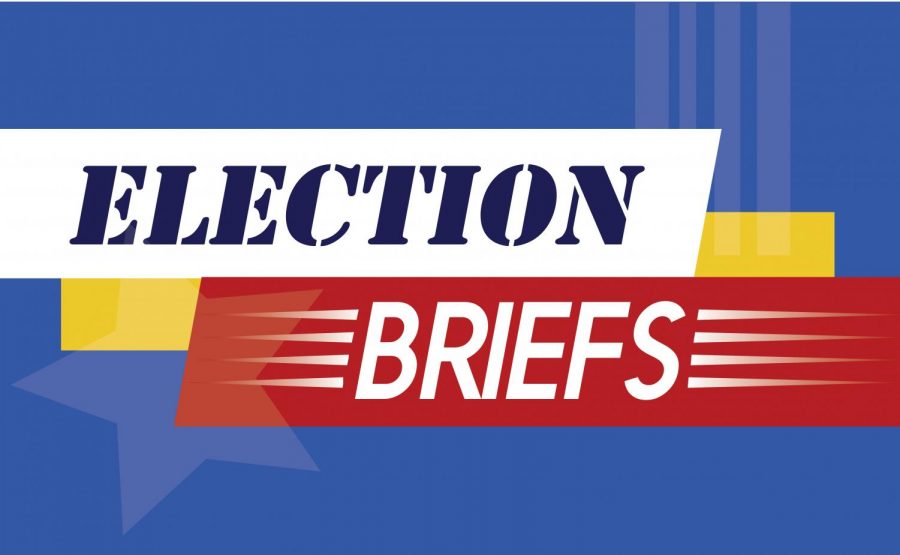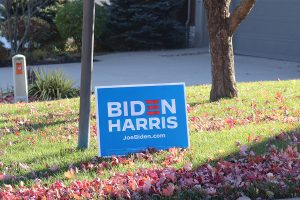Election briefs
In the months leading up to the presidential election, news feeds and daily life have been nothing but a political frenzy. Here’s a rundown of seven major political events from the past few months.
WSS breaks down the events of the 2020 election from the last few months.
November 20, 2020
Sept. 29: First presidential debate
The first presidential debate was held Sept. 29 in Cleveland, Ohio. President Donald Trump and former Vice President Joe Biden discussed topics ranging from COVID-19, BLM protests, climate change and the economy to Supreme Court nominations and the election’s integrity. There were frequent interruptions and personal attacks as moderator Chris Wallace attempted to keep the debate on-topic.
Oct. 1: Trump tests positive
President Trump announced late Oct. 1 that he and First Lady Melania Trump had tested positive for COVID-19. Trump was admitted to the hospital the next day reporting symptoms of fatigue, a mild cough and a fever. He was released from the hospital Oct. 5. Trump attributed his quick recovery to swift treatment and the use of several antiviral medicines. After refusing the offer to hold the second presidential debate virtually, Trump tested negative for the virus Oct. 12.
Oct. 7: Vice presidential debate
Senator Kamala Harris and Vice President Mike Pence had their first and only debate Oct. 7 behind glass dividers at the University of Utah. The contenders clashed over topics including foreign policy with China, COVID-19 management and racial justice.
Oct. 22: Final presidential debate
President Trump and former Vice President Biden had their final debate at Belmont University in Tennessee. New debate rules put in place included muting each candidate’s microphone during their opponent’s two-minute speeches. This resulted in fewer interruptions and more on-topic conversations than the first debate. Topics included COVID-19 management, healthcare options, immigration, race relations, foreign policy and each candidate’s international monetary affairs.
Oct. 27: From RBG to ACB
Supreme Court Justice Ruth Bader Ginsburg passed away at 87 years old Sept. 18 in Washington D.C. President Trump nominated former Seventh Circuit Court of Appeals Judge Amy Coney Barrett to fill the position. The Senate confirmed her as an Associate Justice for the Supreme Court Oct. 27 in a 52-48 vote. Iowa Senators Chuck Grassley and Joni Ernst, both Republican, voted in favor of her confirmation. The political alignment of the Court is now 6-3, conservative-leaning.
Nov. 3: U.S. Congressional results
Republican Senator Joni Ernst defeated Democratic challenger Theresa Greenfield with 51.8% of the vote Nov. 3, keeping her seat in the Senate. In Iowa’s second congressional district, where Johnson County is located, a recount is underway in a tight race between Republican Marianette Miller-Meeks and Democrat Rita Hart. As of Nov. 19, no winner has been declared.
Nov. 7: Presidential election results
President-elect Joe Biden flipped the states of Pennsylvania, Michigan and Wisconsin, leading him to victory with 290 electoral votes to President Trump’s 214. The race wasn’t called by major news companies until Nov. 7. Out of Iowa’s 99 counties, Johnson County was one of five that went to Biden, who won 70.8% of the popular vote. Still, Iowa’s six electoral college votes went to Trump after he won 53.1% of the popular vote. According to Time Magazine, the Trump campaign has filed lawsuits in Pennsylvania, Nevada, Georgia and Michigan for alleged vote-counting fraud.









